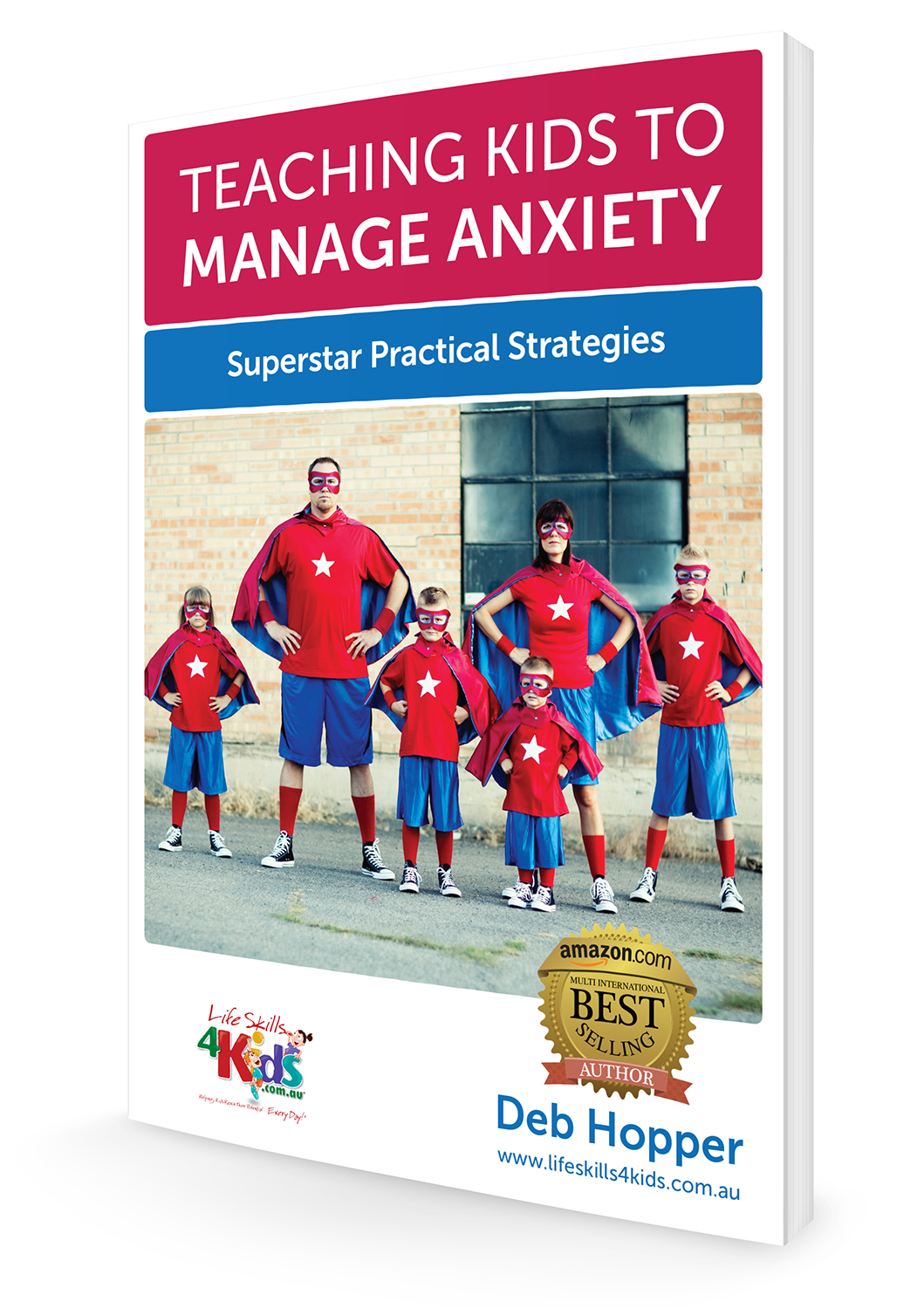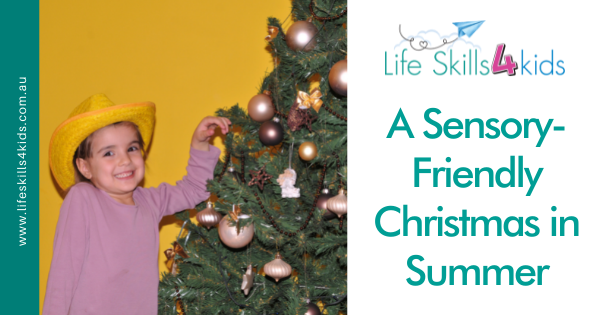As a parent, how can you create a sensory-friendly Christmas in Summer?
Christmas is traditionally a time of great excitement for all kids around the world, but if your young person has sensory or anxiety issues, the story can be very different. If you add into this mix, the hot weather that we enjoy in Australia over the festive season – your kids will have even more to deal with.
Christmas can be a time of great joy for everyone, how can we make that happen?
Top Tips on how to create a sensory-friendly Christmas in Summer
Social Stories
- A great way to prepare your child for any activities or visits which are out of their “normal” routine
- If you can, create the social story together and add in all the triggers that are relevant, then work out how to deal with them
Christmas Structure
- Build a Christmas Timetable together
- Your young person will cope much better if they have advance warning of what is happening on each day of their festive holiday
- Use a familiar timetable, similar to the one your child would use at school
- This can be very visual and include photos (eg of members of the family they haven’t seen for a long time), activities that will happen and choices they can make in each situation
- Even with the best planning in the world, Christmas is a time when things may well not follow that plan! Talk with your child and come up with a special sign that means something “off-plan” might happen – so that they can prepare themselves for this and enjoy a sensory-friendly Christmas in summer
Prepare Ahead of Time
- At LifeSkills4Kids, we often mention a pre-prepared sensory kit for your child to take with them
- It is a fantastic idea to have a rucksack full of games, comforters, toys, technology that you know your child likes. These favourite objects will allow your child to recharge their ability to cope and to self-regulate in any situation
- Also think ahead with strategies which you and your child can use to avoid a meltdown
Pre-Warn before Family Visits
- Some of your family and friends who you do not see very often, will not be aware of the helping strategies that they can use to help your child when they visit
- A pre-visit phone call or email can be a great way to let them know how your child may react when they visit eg:
- you could ask them to turn off the lights on the Christmas tree
- have food choices available that you know your child likes
- turn down the volume or turn off Christmas music
- You know your own child, so share any information that you know will help make any social occasions more manageable for everybody
Food Choices
- Our kids can often be very picky eaters and will only be able to tolerate certain foods
- Factor this into any festive meals that you prepare and make sure there is food available which your child will eat happily
- It is a great idea to pack a bag of food to take with you too, so that you know your child will have food they like
- We are talking about the path of least resistance here – Christmas can be a time of sensory overload and just by providing easy food choices, this will help your child to cope
- It is tempting to try and “make” your child eat the special Christmas treats that you have prepared, but if you can allow them to have their favourite foods instead it will really help
Know your Child’s Triggers
- You are the person who knows your child best
- When you are in the planning stage of any visits or special days, make sure you notice any potential triggers so that you can take steps to avoid them
- When you are actually doing the festive activities, remember to take your child’s rucksack that is packed full of things that will help your child to self-regulate and stay calm
Be “Sensory Safe”
- Remember, if your child it finding it hard to manage his or her behaviour this Christmas and holiday season, have a brain storm about what the triggers might be and brainstorm how you can make your current situation and environment to be :
– Calmer
– More familiar
– More consistent
– Neutral
– Create positive associations
– Slow the pace of the day, decrease expectations
– Change to a quieter activity with less sounds, movement or visual input
– Revert to simpler activities that your child enjoys
Dealing with the Weather
- Christmas can be the hottest time of the year in Australia
- Remember to factor this in, take plenty of drinks, sun cream, shade and cool clothing wherever you go
- The heat can add to difficulties for your child in working on self-regulating their thoughts, actions and emotions – it’s your job to help them out as much as possible
- The warm weather can be a bonus too for your kids – a pool or cool water in the garden can really help your kids to self-regulate and cope with the potential struggles of Christmas
Articles from LifeSkills4Kids with more tips on surviving the holidays :
- Reducing Anxiety for End of Term
- A Sensory Safe Christmas
- How to Transition from School to Home
- Tips for Reducing Anxiety at Christmas
- Creating A Sensory Safe Corner At Home
- Helping Hyperactive & Busy Kids
- Tips for Travelling with Children
- Fireworks Survival Guide
- Minimising Tantrums at the Shops
Written by Deb Hopper, Occupational Therapist
Teaching Kids to Manage Anxiety: Superstar Practical Strategies (eBook)
Kids today are growing up in a fast-paced world where information and opportunity overload can be overwhelming.
Based on many years of clinical experience as an Occupational Therapist, Deb Hopper has been using her Just Right Kids® Model to teach children to communicate and manage their stress and anxiety by:
– Identifying their “body speed”,
– Understanding their stress triggers, and
– Implementing simple strategies to reduce anxiety and stress.


